Discogs is supposed to be an open place where everybody contributes with information about music releases. Theoretically, atleast. In praxis, decisions need to be made and that doesn’t exactly involve thousands of people… About a year ago there was a discussion whether a NES-cartridge should be listed at the site or not. No, someone said, because it’s not recorded music. The NES-cartridge contains code that only plays once the right platform is there to execute it. After all, it’s not as direct as a vinyl record that you can play with your own finger nail.
Most other music formats, however, require complex platforms to be played. CDs in particular, need complex digital error correction to be played correctly. What’s on the CD might be better described as data, compared to the code of the NES-cartridge, but still – you can store “pure audio data” on an NES-cartridge aswell, if you’d like. A storage medium can contain different kinds of information. A CD can contain the code of the NES cartridge. You can encode an MP3 or a JPG or a Hollywood movie on to a piano roll, as long as you have the right technology to decode it with. Didn’t the modernists teach us better than to argue about that?
People pretend like there is a definite answer to the debate about recorded music. It’s certainly a question about media technologies, but it can’t be answered in some pure technical sense. This is a cultural question because the answers depends on ideology, aesthetics, history, and so on. In Western music, there has been a solid separation between written sheet music and performanced music for a long time. It would roughly correspond to the separation between “author” and “performer”. Ideas and praxis. Art and work, even? Maybe. And then piano rolls came and disturbed the dichotomy. Then recorded music arrived and caused a terribly complicated music economy in order to make both composers, labels and musicians’ unions happy. And we’re still stuck with that mess.
Computer music has made these concepts even more hard to use. What is the difference between sheet music and code? How does algorithmic music fit in here? If chipmusic is not recorded music, then who is the performer? When I was a member of a Swedish copyright society (to get money when e.g radio/tv uses my music) I tried to discuss this. Since the radio show Syntax Error played my C64-music straight from a SID-emulator, I told them that it was performed live by the C64 and not recorded music (which affected the payment). Needless to say, they were not impressed by my argument.
And neither were the discogs people. After the discussion last year, they deleted all the NES cartridges from the database and lived happily ever after.
Or did they…?
On discogs there is this category called Floppy. In the format list you can also see things like USB sticks, File, CD, miniDV, flexi disc, and so on. Problem is – these are not formats. They are storage media, that can store many different format. All in all, discogs is bound to run into some pretty difficult choices in the future…
But anyway. This floppy category. What kind of releases can we find there? Right now there are 605 floppy releases listed. Quite a lot of them have been released within the last couple of years. The Hungarian label Floppy Kicks has been very active and there seems to be plenty of noise/lo-fi/drone kind of stuff. Diskette Etikette and Floppyswop are two other floppy labels. I made a release for Floppyswop, and they were sort of connected to the micromusic world it seemed. Here we should also mention Sascha Müller’s Pharmacom records with floppy releases that sometimes had some 8-bittish things. I released stuff there too.
Some floppies are additions to other storage media. Mainstream artists released floppy disks in the 1990’s, likely with jaw-dropping interactive multimedia. Mark Knopfler, Erasure, Everything but the girl, and of course Billy Idol the cyber man himself. There were screen savers by Pink Floyd, Radiohead and Beastie Boys (only in the Netherlands). J Dilla put out a floppy disk with samples for the SP-1200 sampler in 2014, which atm is the most wanted floppy release on discogs. Also, REM made a white label-ish floppy promo in 1994.
Ryuichi Sakamoto included midi-files for 8 tracks off his album BTTB (1998) and someone put out a .mid-file of Tarkan on floppy. Songs made famous by Eric Clapton is a collection of .mid-files of Eric Clapton songs from 1996.
A psy trance compilation was released on 20 floppy disks in 2014. With 20 songs in FLAC. Now that’s pretty impressive! DUMPSTERAC1D released four acid floppies on the Moss Archive label, but Chris Moss Acid has never heard about them. Ethnic techno is a 1989 floppy release from Zambia that also includes a 4″ vinyl.
Most of these releases are legit for the discog man, because they usually contain lo-bit MP3s, interactive media, promo material, and so on. Proper music industry stuff. My releases had mod-files, which is not recorded music. But it seems to have been accepted.
In fact, there is plenty of mod/xm releases in discogs. There’s things like Metal module, Noisetracker modules no.6, Vivaldi’s Four Seasons, and public domain disks that are basically just collections of mod-files. Metallica Meds is even listed as an official Metallica release.
But wait – there’s more! To my surprise, there is plenty of demos and music disks in discogs aswell. I won’t mention them here, out of respect for their discogs presence. But we can be sure that the discog man will eventually hunt and destroy.
And why shouldn’t they? Discogs reflect the “recording industry” and if you’re looking for non-recorded digital music you’d be better of looking at demoscene forums, media art, games, and so on. Things like that might be listed at discogs – like Brian Eno’s Generative Music I or Tristan Perich’s 1-Bit Music, but they are merely tolerated anomalies, it seems. If you don’t like it, you could always buy diskogs.com and start ze revolution!
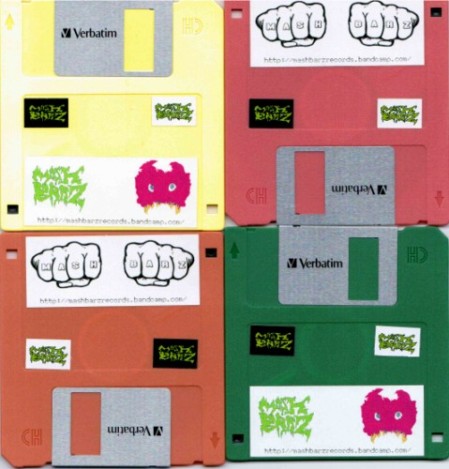
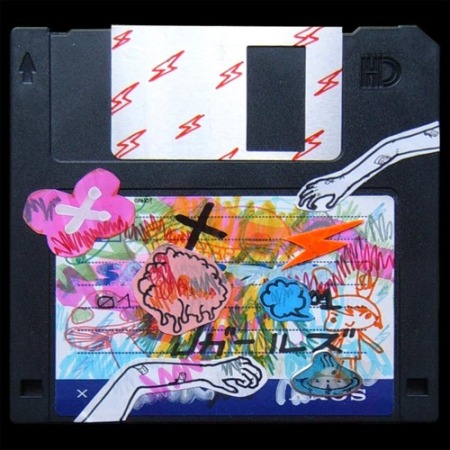
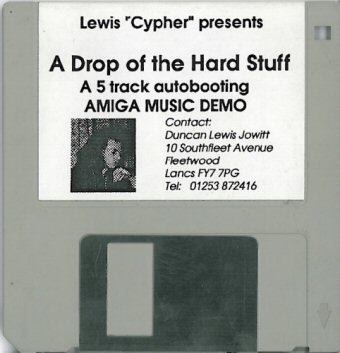
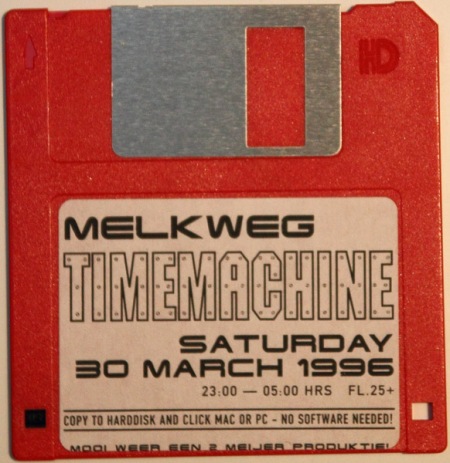
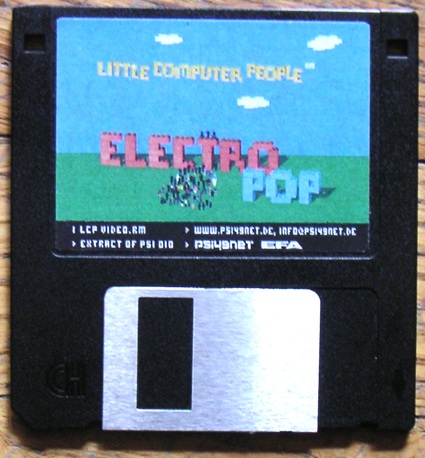
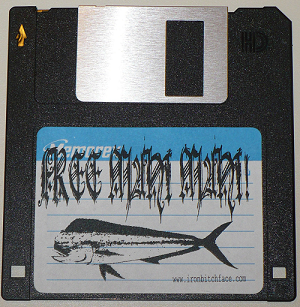
November 7, 2014 at 12:12 am |
I skirted on this subject recently, trying to figure out whether I’d be entitled to recording rights of a MIDI file I wrote, i.e. if it qualifies as a sound recording. I found some US court cases where MIDI and SID files had been treated as musical recordings rather than just compositions. I wonder if the Discogs community take legal precedents as an argument. When it comes to electronic music, it seems like the boundaries between compositions and recordings only exist for archaic legal reasons anyway.
C64 and NES music is interesting, though, since it’s typically distributed as programs. Maybe one could at least file software patents for it? It doesn’t seem too far fetched to suggest that MP3 could be called programs as well. Both MP3 data and C64 code are sequences of data that require super specific state machines to be made into something useful. Neither really becomes music until they’ve been processed by pretty intricate systems.
November 10, 2014 at 10:11 pm |
They did touch on the topic during the Timbaland court cases too. Can’t remember the details, though. Was that the one you found, or something else?
The separation of recordings and compositions might seem archaic, but it’s an important distinction to make in the (political) economy of music, I suppose. The separation of composer and musician, I mean. Without it all, labels and composers wouldn’t be very happy.
January 7, 2015 at 7:26 am |
Reblogged this on frkbmb.
January 7, 2016 at 3:35 pm |
MmcM – The Blossoming Years
Released in April 2015 as digital download + AudioCD image + executable code for ZX Spectrum+AY chip.
http://www.pouet.net/prod.php?which=65367
July 28, 2020 at 5:31 pm |
Do you have any video of that? I’d want to find out some additional information.|